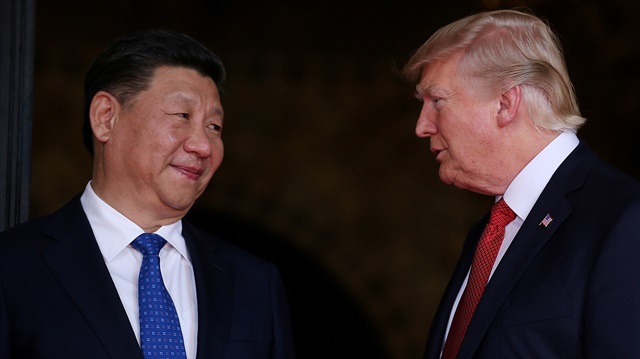
"When exposing and criticising American words and actions, be careful not to link it to Trump and instead to aim it at the U.S. government," said a memo based on a set of directives issued verbally by government officials that was circulated to reporters at a state-run news outlet.
But the attacks have been general - there has been little mention of Trump, for instance - and few details on how China will be affected.
Two sources at separate state-run news organisations said they had been instructed not to mention the impact of the trade war on Chinese companies in their coverage.
At one large state news organisation, a fourth source said journalists had been instructed to report on Chinese company news with caution because some were already feeling the effects of the trade spat.
Reporters at the news outlet, a key government mouthpiece, were directed not to stir up negative emotions or "reveal the cards" of Chinese importers, the source said.
In disputes with South Korea and Japan in recent years, Beijing has taken a more aggressive stance and at times encouraged public anger.
In 2012, state media tacitly supported anti-Japan protests during a spat over disputed islands, and last year the Communist Youth League helped target South Korean brands on social media amid a row over Seoul's decision to allow the United States to install an advanced missile defence system on the Korean peninsula.
But the power imbalance in the China-U.S. trade dispute and the potential for real economic discomfort have led the control-obsessed leadership to adopt a softer approach, analysts said.
"They know the seriousness of the situation and the possible consequences, and they don't want the media coverage to bring any kind of extra damage," said Li Xigen, a professor in the department of Media and Communications at City University of Hong Kong.
"Later, as the situation gets worse, if the people are actually affected with their jobs, with prices ... that may become real anger, and if the media do anything to stir up that kind of anger it will cause some kind of very bad consequences."
The trade war does not appear to be a hot item on China's tightly-controlled social media. Media sources said authorities were censoring anything found objectionable, minimising the prospect that any outcry on social media platforms could spur a backlash against U.S. brands.
Wang Jiangyu, a trade expert at the National University of Singapore, said attacking U.S. firms could backfire.
"China might need to restrict the market access of American companies. But to purge American companies that are already operating in China might be a very bad idea. Those companies generate jobs and revenue for China. Most Apple products are made in China," he said.
"To do something to harm American firms that are already operating in China would be very stupid."
Hello, the comments you share on our site are a valuable resource for other users. Please respect other users and different opinions. Do not use rude, offensive, derogatory, or discriminatory language.
The floor is all yours.








